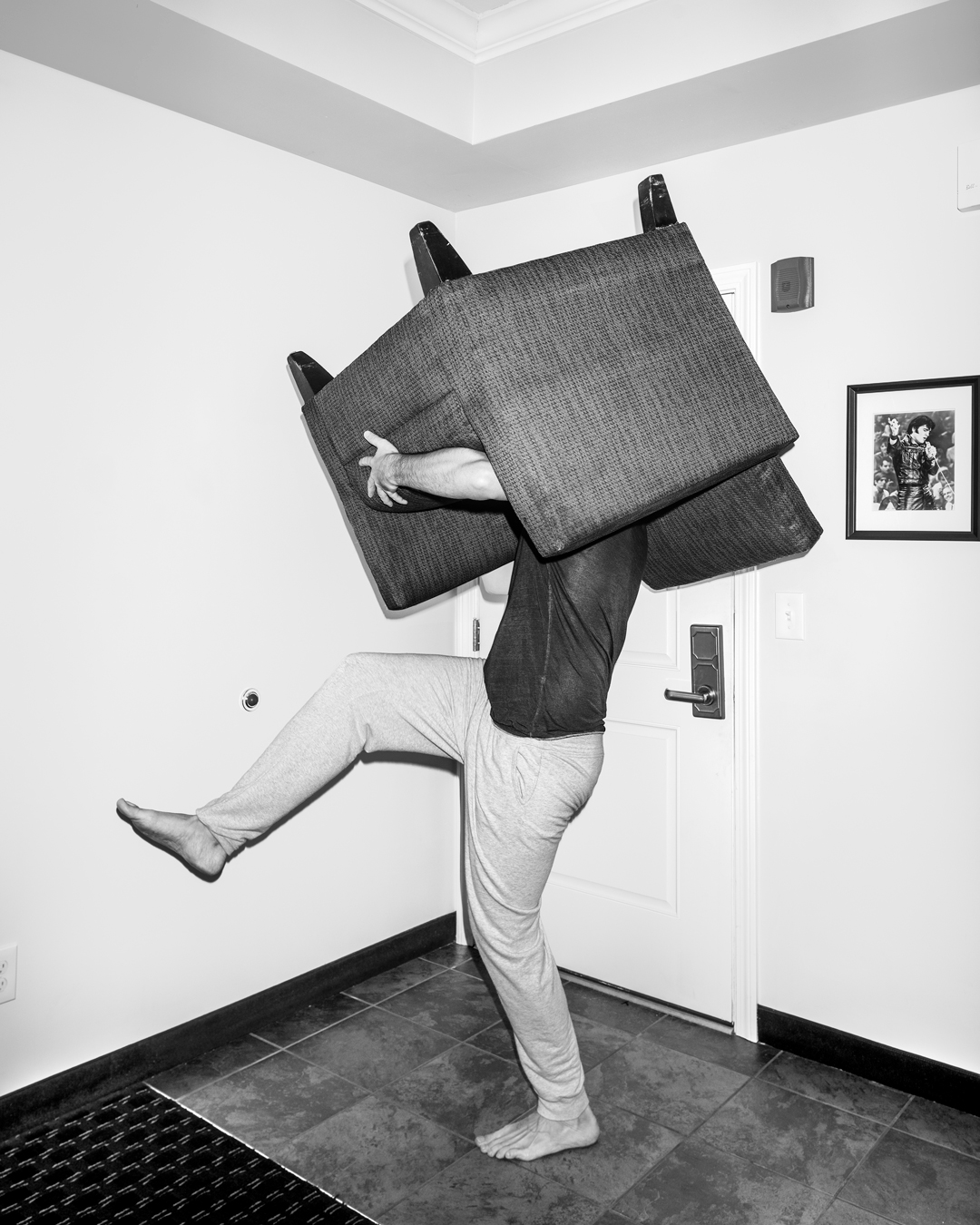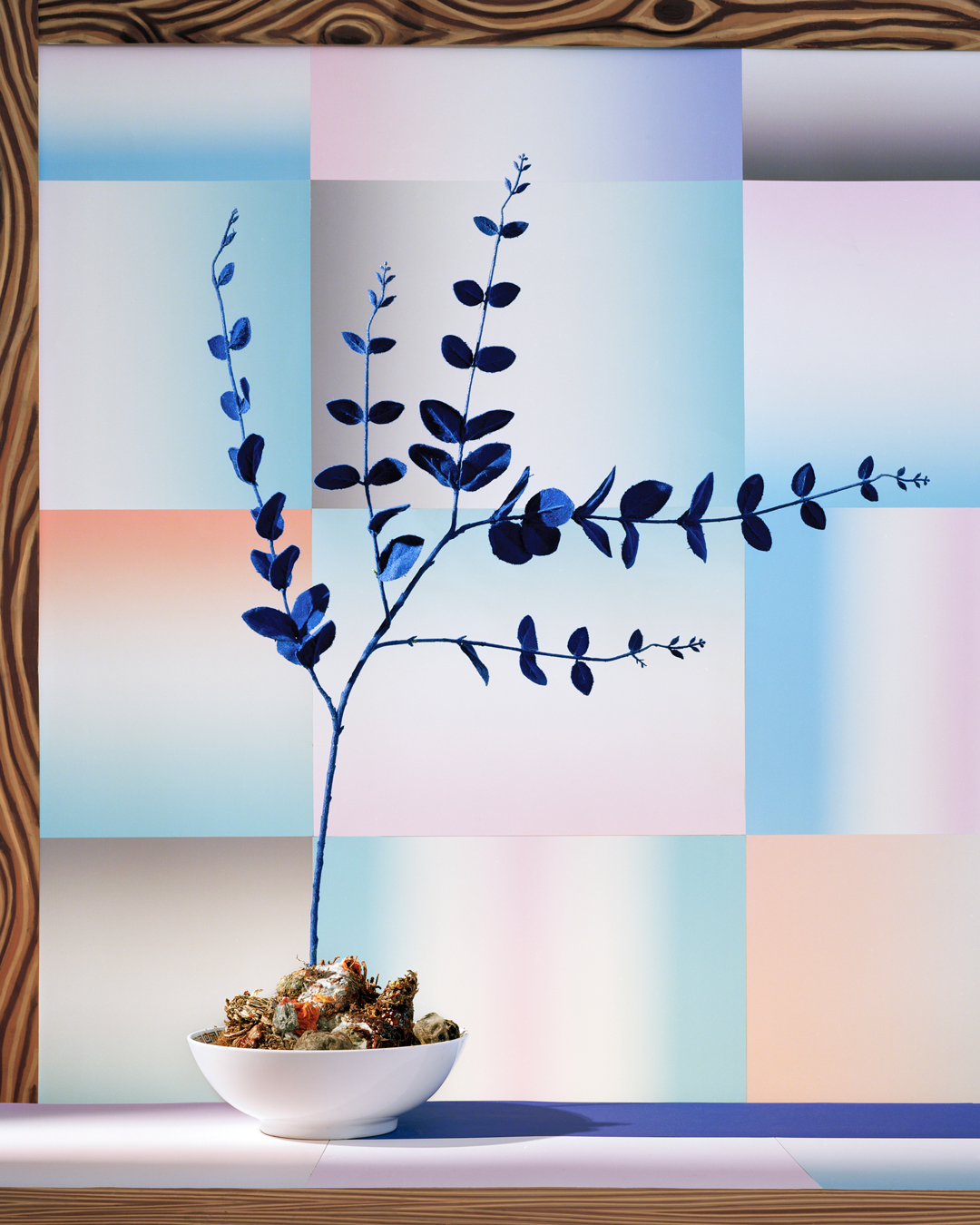Alex Yudzon is an American artist whose work blurs the line between photography, painting, sculpture and performance. Creating autonomous photographs from site specific installations and studio based still lifes, Yudzon’s work draws attention to the way we construct personal space within the context of the modern world.
"It seems that history is always testing art, like a deranged architect adding weight to a bridge to see how much stress it can take before collapsing. After all, this is what art is, a bridge that connects two places that would otherwise be unable to find each other. It connects the past to the present, the private to the public, the spiritual to the physical, the personal to the cultural and like any structure it's only as strong as the latest catastrophe. The horror of the Holocost, the terror of 9/11 and now the global pandemic of the Coronavirus. After each event artists of all disciplines are forced to ask, “how can we make art in light of this?”. Perhaps the better question is, “how could we make art without this?”. Would a perfect world need art, would creativity exist in a utopia, painting, drawing, sculpture, music, writing? Without the terrible events of the world art would be mere decoration, an afterthought to a perfect existence. It is because we suffer, because the world is haunted by the ghosts of our own insufficiency, buy the cruelty of chaos and the indifference of chance that we make art, not to adorn the halls of power and wealth but to affirm our essential connection to a larger whole. Kafka said that art is the axe that breaks the sea of ice within us. Perhaps a day will come when there is no ice, until then thank god we have the axe."
Alex Yudzon New York, USA. March 30, 2020
Cobh, Ireland, No.4 (July 21, 2019)
66 × 55,9 cm, archival pigment printColchester, VT, no.2 (November 14, 2019)
66 × 55,9 cm, archival pigment printMarfa,TX, no.3B (April 20, 2019)
66 × 55,9 cm, archival pigment printMarfa, TX, no.4 (April 20, 2019)
66 × 55,9 cm, archival pigment printMiddletown, RI (November 10, 2019)
66 × 55,9 cm, archival pigment printHotel rooms are mysterious spaces, charged with a blend of loneliness and desire they give the appearance of comfort while offering none of the relief of a real home and ultimately belong to no one. This contradictory aspect of travel, our desire to find a home in the far away and distant lands we escape to in order to get away from home, is at the heart of the series A Room for the Night.
Begun in 2014, A Room for the Night is an ongoing series of images made entirely in hotel rooms. Traveling to different hotels around the world, I secretly make and photograph temporary sculptural assemblages using only the furniture and objects found in each room. Working mostly at night, I stack, lean and balance furniture in configurations that range from the formal to the surreal. These sculptural installations transform the mundane familiarity of the room into a theater of beauty and absurdity. Upturned stacks of dressers and nightstands become tribal totems, mattresses are leaned against walls to reveal garish designs beneath the sheets, and chairs and side tables are assembled in unexpected combinations evoking modernist sculptures and minimalist installations. After these sculptures are completed they are photographed in an austere style reminiscent of crime scene photography. I work alone and after I am done the room is carefully restored to its original condition.
My work combines humor and pathos to reveal the anonymous dreams, desires, transgressions and fantasies that all rooms secretly contain. I work while I travel, each room becomes a memory of the past, each photograph a memory object, an affirmation that the most mundane surroundings hold a potential world of wonderment and meaning.
Alex Yudzon, artist
Flowers and Bulbs. From the Still Life series (2016)
66 x 53 cm, archival pigment print on paperBlue Window. From the Still Life series (2016)
66 x 53 cm, archival pigment print on paperPear with Tree. From the Still Life series (2015)
66 x 53 cm, archival pigment print on paperHaving originally trained as a painter, my photography is deeply rooted in the practice and history of painting. The visual language of painting and my experience as an immigrant, the ineluctable sense that our world of plentitude masks a deep existential uncertainty, are the biggest influences on my work.
In my latest series of still life photographs I utilize the interrelated languages of painting and photography to examine our collective anxieties of social collapse. I am interested in 16th and 17th century master paintings as cultural wish symbols, and specifically the Vanitas genre of still life, which combine rotting food with various objects to emphasize the ephemerality of sensual experience.
The photographs are produced in staged environments and depict unnerving scenes of decadence. Profuse quantities of food are combined to create a surreal world that is both beautiful and grotesque.
Hand painted scenes or reproductions of famous paintings are used as backdrops to further emphasize the contrast between the idealized depictions in the backgrounds and the entropic arrangements in front of them. Seen together, these contradictory juxtapositions lend the work a dark, abject humor which both agitates and moderates our anxiety of collapse through overabundance.
Alex Yudzon, artist







